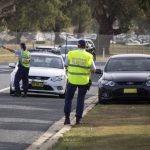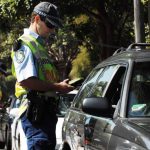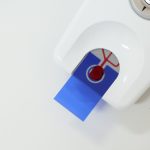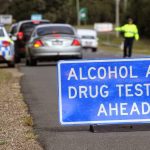South Australia Proposes Sensible Defence to Drug Driving
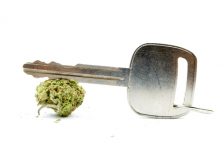
Last month, the South Australian Legislative Council voted in favour of an amendment to drug driving legislation that would provide medicinal cannabis users with a defence if they fail a roadside drug test.
The Statutes Amendment (Drink and Drug Driving) Bill 2017 was introduced into parliament in May this year.
Section 47AB of the bill states that “for a drug driving offence involving THC, it is a defence if the defendant proves,” they have a condition or disability requiring an approved medicinal cannabis product, and they have a medical certificate that states they’re fit to drive whilst using it.
The amendment was put forth by South Australian Dignity Party MLC Kelly Vincent, and supported by the Liberal opposition, Greens MPs and Independent MLC John Darley.
If passed through the House of Assembly, the bill could alleviate injustice to patients who use medicinal marijuana products and have the need to drive for work or other purposes.
Like any other legal medication
Ms Vincent explained that “these drivers will need to have their competence to drive while using medical cannabis assessed by a medical doctor.” And this will be much the same as the process that happens today in regards to older drivers who take various medications.
“Medical cannabis is now a legal medication,” Ms Vincent told Sydney Criminal Lawyers®. “As with other legal medications, users should be able to be assessed against their personal capacity to drive.”
The federal government passed legislation in February last year, allowing for the cultivation and manufacture of medicinal cannabis products.
And as it will be some time before domestically produced products become available to the public, Australian health minister Greg Hunt announced an interim medicinal cannabis importation scheme last February. The first two batches of the medicine arrived in the country from Canada in May.
In April this year, the SA government reduced restrictions surrounding approved cannabis medicines, so that doctors can now prescribe them for periods of two months without having to seek state approval.
It’s not testing for impairment
“The oral saliva drug tests police use in South Australia are crude because they don’t test for levels of a drug, they only indicate a positive or negative result,” Ms Vincent said. And indeed, this is a criticism of police mobile drug testing (MDT) operations throughout the country.
When police pull drivers over they only test them for three illicit substances, which are amphetamines, MDMA and THC: the psychoactive component of cannabis. This is despite the devices they use having the capacity to be able to detect other illegal drugs.
Random breath testing confirms whether an individual is too impaired to drive, as it tests for dangerous levels of alcohol in a driver’s system. However, mobile drug testing does nothing of the sort. It simply tests for the presence of minute traces of the three targeted drugs in a person’s saliva.
No threat to road safety
According to Ms Vincent, the psychoactive properties of cannabis are only enabled when it is heated, yet many medical cannabis users are using cold-pressed cannabis oil.” This means drivers who use the medicine would test positive for THC, but they wouldn’t be under its influence.
“The science and evidence clearly demonstrate cannabis use does not increase the risk of accidents to the same extent as speeding or fatigue,” Ms Vincent continued, adding that this was why the other parliamentarians had supported her amendment.
Medicinal cannabis is now legally available in 29 US states. Ms Vincent pointed out that in the US jurisdictions where the medicine is legal the overall traffic fatality rate has dropped by 11 percent.
After the initial legalisation of cannabis medicines in California traffic deaths immediately dropped by 16 percent, while in New Mexico they decreased by 17 percent.
A flawed system
Australia 21 released its latest report on illicit substances in March this year. The majority of the think tank that produced it was made up of former senior law enforcement and law officials, including ex-police commissioners.
The sixth recommendation Australia 21 made in its report was that “current practices to test drivers for the presence of psychoactive substances in their blood should be rigorously reviewed.”
The authors outlined that the purpose of such testing “should be to ascertain whether the driver is unsafe or unfit to drive as a result of psychoactive drug use,” not to ascertain whether they had consumed any of these substances in the past.
Problems with the MDT operations in NSW are well-known. Magistrate David Heilpern remarked last year that Lismore Local Court deals with about 50 cases a week that involve people pleading guilty to drug driving charges, even though they claim to have tested positive to THC due to passive smoking.
The magistrate handed-down a landmark decision in February last year, when he found Joseph Carrall not guilty of drug driving. His Honour concluded that Carrall had established the defence of ‘honest and reasonable mistake of fact’ because, on a previous occasion when he was booked for drug driving, he was advised by the police officer that “if you had waited a week, you’d be fine” and therefore waited nine days after smoking on the following occasion before driving.
The authors of the Australia 21 report further stated that the issues surrounding MDT operations “will become a particular concern as the proposed new laws governing use of medicinal cannabis come into effect.”
A likely defence
“We need far more sophisticated analysis of the factors that actually impact driver impairment, including strong opioid medications that we currently do not test for,” Ms Vincent said.
This information is available and needs to be applied to Australian MDT operations. The 2013 Wolff report from the UK outlines the levels that certain drugs have on driver impairment.
Another criticism Ms Vincent has of SA mobile drug testing is “they don’t test for cocaine.” NSW Greens MLC David Shoebridge has criticised his state’s MDT regime for the same reason. He points out that cocaine is a drug of choice of the rich, whilst the drugs currently being tested for are used by less affluent people.
However, in the state of NSW this is set to change, as NSW police announced earlier this month it will be expanding its MDT operations to include cocaine. And trials of cocaine testing will be rolled out in the wealthy eastern suburbs region by the end of the year.
In South Australia, it seems highly likely that the medicinal cannabis drug driving defence will become a reality, as it’s part of a government bill. As Ms Vincent puts it, “If they vote against it, they will be denying the science and delaying the passage of their own measure.”
And let’s hope if it is successful, that other jurisdictions around the country follow suit.
Going to court for a traffic offence?
If you are going to court for a traffic offence, call or email Sydney Criminal Lawyers anytime to arrange a free first consultation with an experienced, specialist traffic lawyer who will accurately advise you of your options, the best way forward, and fight for the optimal outcome in your specific situation.



